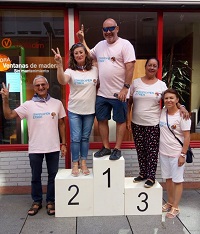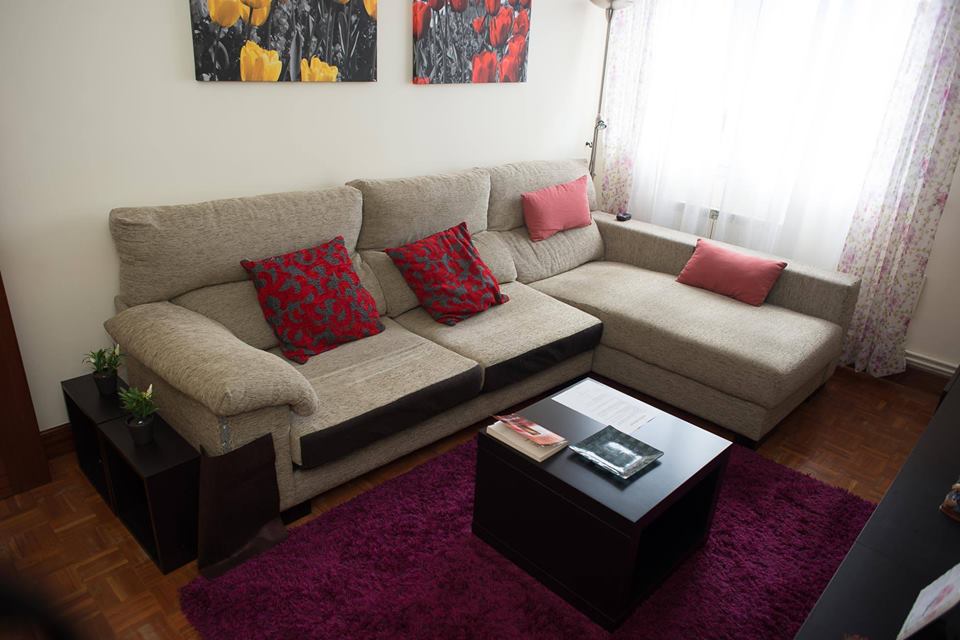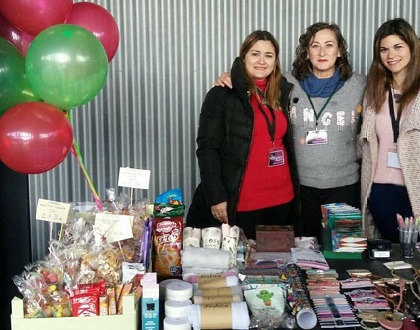The house where carers are cared for
Evangelical communities in Cruces (Vizcaya) have facilitated a ‘welcome flat’ for relatives of patients admitted to the municipal hospital who arrive from other places. The goal is to offer rest and care.
CRUCES (VIZCAYA) · 24 SEPTEMBER 2018 · 09:35 CET

The University Hospital in Cruces is one of the most crowded health centres in the Basque Country (Spain). Only 55% of patients come from adjoining health districts of Ezkerraldea-Enkarterri and Uribe.
Due to the specialised services that the hospital offers, such as oncological treatments and radiotherapy, various types of surgery, and even microbiology, everyone else comes from other areas of the Basque territory and the rest of the Iberian peninsula.

Ana Ussia, head of the project alongside her husband, Isidoro Serralde, explains: “the hospital in Cruces is a centre of reference for the rest of the Basque Country, but also for other areas in the north like Cantabria, Navarra in cases of very specific diseases”.
“There was a great need to relieve families that are already going through a very complicated time due to sickness and disease; add to that the idea of staying in an unfamiliar place and, in some cases, with complicated financial issues, or simply a very long stay where a hostel room is going to be insufficient”.
The initiative was born of a proposal from the Cruces Hospital’s Evangelical Chaplaincy together with ‘Hay una esperanza para ti’ (There is a hope for you), the community action association of local church, Punto de Encuentro Cristiano, which is pastored by David Bengoetxea and Gemma López, who also both oversee the project.
“David and Gemma told us about a project with a different format, aiming to provide accomodation for family members”, adds Ussia. “And, changing our minds, we thought the most convenient thing would be to rent a flat. How can we ease the burden on family members if we’re not providing them with a place to stay?”
DIFFERENT AREAS OF CARE
The flat has three bedrooms, a kitchen and a shared bathroom. The only requirement to access this accomodation is that you live in a different catchment area to the hospital. So far, Itxaropen Etxea has been home to 25 people from Álava, Guipúzcoa, Vizcaya, Aragón, Navarra and Alicante.

“Everyone that has stayed here has said that the first thing they experience is the relief when you tell them they can come to the flat, that they no longer have to worry about where they will have to spend the night, and that they only have to focus on looking after their relative”, says Ussia. “Everybody says that they feel a lot of peace on coming into the house, and we want this to be a place of rest”.
The need for accommodation isn’t the only one that is covered by the flat. Emotional needs also become clear in living together with people who closely experience sickness and disease. “We actively listen to what these people are going through, giving them opportunities to express their fears, their suffering due to the difficult situations that they’re going through, and sometimes they just need a hug”, Ussia points out. “They know that they have someone close by and that they aren’t alone here”, she says.
The spiritual dimension comes in through being emotionally open, and the discovery of a spiritual need often follows. “We can see how people from other religions and non-believers seek God in moments like these”, says the head of the project. “We are here to offer the love of Jesus through our actions and words. If they want us to, we pray for the relatives, for them as carers, and we offer them the possibility of having a relationship with God”.
EXPOSURE AND PARTNERS: THE NEEDS
According to Ussia, the money given by the current partners of the project only covers 30% of the costs of the flat. “At the moment, we haven’t been able to access any subsidies, so we do voluntary meals, we put out requests for voluntary payments as well. Anything that comes to mind, and the doors that God opens to get funding”, says the head of the project, where two people also collaborate as volunteers.

The newness and the promotion of the flat are another obstacle to overcome. “We need the project to be known”, adds Ussia, “and for whoever needs the house to know that we are here and can give that service”.
Published in: Evangelical Focus - cities - The house where carers are cared for
